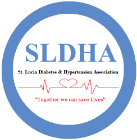
Managing diabetes requires a proactive approach to personal care to ensure long-term health and prevent complications. People living with diabetes need to be vigilant about several aspects of their daily routine, including nutrition, exercise, medication, and skin care. By taking consistent steps to manage the condition, individuals can maintain their overall well-being and lead healthy lives.
Key Areas of Personal Care for People with Diabetes:
Blood Sugar Monitoring: Regularly checking blood sugar levels is essential to keep glucose in the target range. This helps prevent both hyperglycemia (high blood sugar) and hypoglycemia (low blood sugar), which can lead to severe complications if not managed properly.
Healthy Diet: A balanced diet rich in fruits, vegetables, lean proteins, and whole grains can help regulate blood sugar levels. It's important to watch carbohydrate intake and avoid processed sugars. Working with a dietitian can help create a meal plan tailored to individual needs.
Physical Activity: Regular exercise is crucial for maintaining healthy blood sugar levels, improving circulation, and managing weight. Engaging in activities such as walking, swimming, or cycling can enhance insulin sensitivity and overall health.
Medication Adherence: Sticking to prescribed medications or insulin regimens is key to managing diabetes effectively. It’s important to take medications at the same time each day and follow any instructions from healthcare providers.
Foot Care: People with diabetes are more prone to foot infections and ulcers due to reduced circulation and nerve damage (neuropathy). Regular foot inspections, wearing proper shoes, and seeking medical care for any sores or wounds can prevent serious complications.
Skin Care: Diabetes can lead to dry, cracked skin, making it prone to infections. It’s important to moisturize regularly, avoid hot showers, and keep the skin clean and dry. Pay close attention to areas prone to irritation, such as between toes and underarms.
Hydration: Staying hydrated is essential for blood sugar control and overall health. Water is the best option for hydration, as sugary beverages can cause spikes in glucose levels.
Eye Care: Diabetes increases the risk of developing eye conditions such as retinopathy, glaucoma, and cataracts. Regular eye exams are crucial for early detection and prevention of vision loss.
Oral Health: High blood sugar levels can lead to gum disease and other oral infections. Brushing, flossing, and regular dental checkups are vital for maintaining good oral health.
Stress Management: Stress can raise blood sugar levels and make diabetes management more challenging. Incorporating relaxation techniques such as meditation, deep breathing, or yoga can help reduce stress and improve blood sugar control.
By focusing on personal care and taking consistent steps to manage diabetes, individuals can prevent complications, lead healthier lives, and enjoy better long-term outcomes.